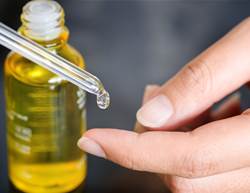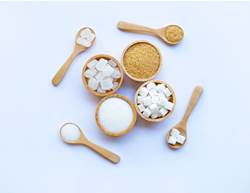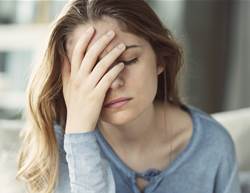It’s a frustrating fact of life: dry, cracked lips can strike at any time. Sometimes the cause is obvious—like running out of your go-to balm—but other times, the dryness seems to appear out of nowhere.
The reality is, there are several possible reasons for dry lips, which makes identifying the cause an important first step, says dermatologist Dr Ife J Rodney.
Below, dermatologists explain some of the most common triggers—and what you can do to get your lips soft and healthy again.
8 common potential causes of dry lips
There are several reasons you might be dealing with dry lips—and sometimes it’s a combination of factors. Some are environmental or linked to your lifestyle (like those below) and are relatively easy to manage. But in some cases, dry lips can be a sign of something more serious, like squamous cell carcinoma, a form of skin cancer that can develop on the lips. This may show up as a rough, reddish, scaly patch that feels persistently dry.
Other medical issues, like autoimmune conditions, can also be behind chronically dry lips. If the problem doesn’t go away or seems to worsen, don’t hesitate to speak to your GP or dermatologist.
That said, here are some of the most common causes to consider:
You’re dehydrated.
Just like the rest of your skin, your lips can show signs of dehydration. If you’re not drinking enough fluids consistently, dry, cracked lips can be one of the first clues.
How much water you need each day depends on several factors, but as a general guide, it is recommended that women aim for about 2.7 litres of fluids per day, and men about 3.7 litres. That includes water from both food and drinks.
You’re sunburned.
Your lips can burn just like any other part of your skin—and they’re especially vulnerable because they’re always exposed. Without proper protection, UV damage can dry them out and increase the risk of skin cancer.
“Lips are constantly exposed to UV, and skin cancer can occur on the lips,” says dermatologist Dr Gary Goldenberg. That’s why Dr Rodney recommends applying a lip balm or sunscreen stick with SPF as part of your daily sun protection routine.
You’ve been out in the wind.
Blustery conditions can strip your lips of their natural moisture, leaving them dry and flaky. “Wind can dry out your lips’ natural moisture, leading to chapping and peeling,” explains Dr Rodney. The effect is even more noticeable in dry air, especially during cooler seasons.
You’ve been licking your lips.
It might feel like you’re adding moisture, but licking your lips actually has the opposite effect. Saliva contains enzymes that can break down the protective oils on your lips, says Dr Rodney. “The moisture you add from licking evaporates quickly, which can leave your lips feeling even drier,” adds Dr Goldenberg.
You have a vitamin deficiency.
A lack of certain nutrients could be behind your dry lips. According to Dr Goldenberg, deficiencies in iron and B vitamins are among the most common culprits. When levels are low, your lips may show signs of dryness or cracking.
The only way to know for sure is through a blood test. If you suspect a deficiency, book a check-up with your doctor for proper assessment and support.
You’re in hot or dry weather.
Just like wind and cold, heat and dry air can strip away your lips’ natural moisture barrier. “Hot, dry conditions can dehydrate the skin on your lips quickly,” says Dr Rodney. Staying hydrated and using a protective balm can help.
It’s really cold out.
Freezing temperatures can also spell trouble for your lips. Cold air tends to be dry, and that lack of humidity can pull moisture from the surface of your lips. “Cold weather is usually linked with dry air, and that can fight against your lips’ natural moisture,” says Dr Rodney.
You’re having an allergic reaction.
Sometimes, what’s meant to protect your lips could be what’s causing the problem. “The lip balm or lipstick you’re using could be a culprit, especially if it contains fragrance, menthol or salicylic acid,” says Dr Goldenberg. These ingredients can irritate sensitive skin, making chapping worse. If your lips are persistently dry or inflamed, consider switching to a fragrance-free formula and check with a dermatologist.
When to see a doctor
Dry lips can be uncomfortable, but you don’t need to put up with them for long. If you’ve increased your water intake, tried using petroleum jelly and cut out known irritants—but your lips still aren’t improving—it’s time to check in with your doctor.
While dry lips are usually caused by something simple like dehydration or sun exposure, they can occasionally signal something more serious. Autoimmune conditions, medication side effects or even skin cancer can sometimes be behind persistent symptoms, so it’s best not to ignore them.
How to treat dry lips
There are simple ways to soothe and heal chapped lips. Dr Rodney recommends reinforcing the skin barrier with a layer of petroleum jelly. It acts as a seal to lock in moisture.
Hydrating from the inside is just as important. “Drinking plenty of water throughout the day can help treat and prevent dry lips,” says Dr Goldenberg.
And hands off—peeling or picking at flaky lips only delays healing and increases the risk of irritation or infection.
How to prevent dry lips
Dermatologists recommend a few easy steps to keep your lips smooth and protected:
- Use a lip balm with SPF 30 or higher every day
- Stay well hydrated
- Avoid harsh ingredients, allergens and known irritants
Dr Rodney recommends Vaseline as a gentle, fragrance-free option. For added moisture and healing, Dr Goldenberg suggests Aquaphor Healing Ointment. He’s also a fan of Sun Bum Mineral Lip Balm SPF 30, which contains zinc oxide for sun protection.
FAQs
Should you use sunscreen on your lips?
Yes—your lips need sun protection just like the rest of your skin. Dr Rodney recommends using a lip balm or lipstick with built-in SPF. Double-check your go-to products to ensure they include it, and remember to reapply throughout the day, especially when outdoors.
Why might people have dry lips in pregnancy?
Hormonal changes during pregnancy, particularly elevated levels of progesterone and oestrogen, can affect oil production and reduce your lips’ natural moisture. “The risk of dehydration also increases during pregnancy, with higher demands placed on the body,” says Dr Goldenberg.
How long will it take to revitalize dry lips?
It depends on the cause, but in most cases, lips can improve within a few weeks. “In general, it can take two to four weeks, since that’s the normal duration of cellular turnover in the skin,” explains Dr Goldenberg.
Bottom line
Dry lips are common and can stem from a variety of everyday factors, including dehydration, harsh weather or even certain products. Thankfully, in most cases, relief is possible with a few simple changes—like hydrating more, using a lip balm with SPF and avoiding irritants.
But if your symptoms linger or worsen despite these steps, speak to a GP or dermatologist to rule out any underlying issues.










